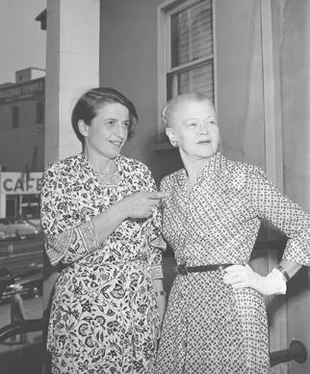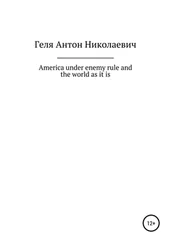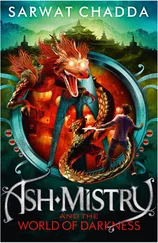Anne Heller - Ayn Rand and the World She Made
Здесь есть возможность читать онлайн «Anne Heller - Ayn Rand and the World She Made» весь текст электронной книги совершенно бесплатно (целиком полную версию без сокращений). В некоторых случаях можно слушать аудио, скачать через торрент в формате fb2 и присутствует краткое содержание. Жанр: Биографии и Мемуары, на английском языке. Описание произведения, (предисловие) а так же отзывы посетителей доступны на портале библиотеки ЛибКат.
- Название:Ayn Rand and the World She Made
- Автор:
- Жанр:
- Год:неизвестен
- ISBN:нет данных
- Рейтинг книги:5 / 5. Голосов: 1
-
Избранное:Добавить в избранное
- Отзывы:
-
Ваша оценка:
- 100
- 1
- 2
- 3
- 4
- 5
Ayn Rand and the World She Made: краткое содержание, описание и аннотация
Предлагаем к чтению аннотацию, описание, краткое содержание или предисловие (зависит от того, что написал сам автор книги «Ayn Rand and the World She Made»). Если вы не нашли необходимую информацию о книге — напишите в комментариях, мы постараемся отыскать её.
Ayn Rand and the World She Made — читать онлайн бесплатно полную книгу (весь текст) целиком
Ниже представлен текст книги, разбитый по страницам. Система сохранения места последней прочитанной страницы, позволяет с удобством читать онлайн бесплатно книгу «Ayn Rand and the World She Made», без необходимости каждый раз заново искать на чём Вы остановились. Поставьте закладку, и сможете в любой момент перейти на страницу, на которой закончили чтение.
Интервал:
Закладка:
Gallant, driven, brilliant, brash, cruel, as accomplished as her heroes, and ultimately self-destructive, she has to be understood to be believed.
ANNE C. HELLER
FEBRUARY 2009
ONE
BEFORE THE REVOLUTION
1905–1917
If a life can have a theme song, and I believe every worthwhile one has, mine is a religion, an obsession, or a mania or all of these expressed in one word: individualism. I was born with that obsession and have never seen and do not know now a cause more worthy, more misunderstood, more seemingly hopeless and more tragically needed. Call it fate or irony, but I was born, of all countries on earth, in the one least suitable for a fanatic of individualism, Russia.
Autobiographical Sketch, 1936
When the fierce and extraordinary Ayn Rand was fifty-two years old, about to become world famous, and more than thirty years removed from her birthplace in Russia, she summed up the meaning of her elaborate, invented, cerebral world this way: “My philosophy, in essence, is the concept of man as a heroic being, with his own happiness as the moral purpose of his life, with productive achievement as his noblest activity, and reason as his only absolute.” It was a world in which no dictator, no deity, and no well-meaning sense of duty would ever take away the moral right of the gifted individual—Ayn Rand—to live according to her own high-wattage lights.
This was not the world she was born into. Ayn Rand was born Alissa Zinovievna Rosenbaum, a Russian Jew, on February, 2, 1905, in St. Petersburg, then the capital city of the most anti-Semitic and politically divided nation on the European continent. Later, she would say that she loathed everything Russian, and while this was not entirely true—she retained her appetite for Russian classical music and Russian sweets until the end of her life—she hated the passivity, brutality, and primitive religiosity of the Russia of her youth.
She had good reason for this. Her birth came barely three weeks after the brief but bloody uprising known as the 1905 Revolution, where, on a bright January Sunday morning, twelve thousand of Czar Nicholas II’s cavalrymen opened fire on thirty thousand factory workers, their wives and children, labor organizers, and students who had walked to the Winter Palace to petition for better working conditions and a role in the czar’s all-powerful government. The protest was led by a Russian Orthodox priest named Father Gapon, and many marchers were said to be praying as they died. The slaughter gave rise to days of rioting throughout the city and set the stage for the Bolshevik Revolution of October 1917, which would end not in the quick and brutal suppression of the rebellion’s leaders, as this one did, but in a revolutionary coup that would shake the world and mold Ayn Rand’s worldview.
Rand’s parents, who in January 1905 were thirty-four and twenty-five and had been married for just nine months, could hear the gunfire from the windows of their new apartment above a pharmacy on Zabalkanskii Prospekt—the street on which, later that evening, the popular writer Maxim Gorky would hold a meeting of the city’s liberal intellectuals and announce, “The Russian Revolution has begun.” Rand’s father, born Zelman Wolf Zakharovich Rosenbaum but known outside the family by the non-Jewish variant of his name, Zinovy, was a pharmaceutical chemist and the manager of the shop downstairs. Her mother, a homely but self-consciously stylish woman named Khana Berkovna Kaplan, known as Anna, had been trained as a dentist but had stopped practicing after her marriage and pregnancy.
By the time Ayn Rand was born, Zabalkanskii Prospekt and the streets around it were calm again. It was an illusory calm: all over Russia and the vast Russian territories to the south and east, massive labor strikes, anti-czarist peasant insurrections, and anti-Jewish violence were erupting. This would continue, in waves, until 1914, when World War I briefly united the nation against the Germans, and would grow yet more explosive from 1915 to 1919, when the country was war torn and starving. Meanwhile, Marxist political organizations, their leaders in and out of exile in Siberia and Europe, gained a following.
In these years, it was dangerous to be a Jew. As the economy deteriorated and the czar grew more repressive, the brunt of popular anger often fell upon Russia’s five million Jews. At Czar Nicholas II’s court, as elsewhere in Europe, Jews had long been identified with the supposedly pagan notions of a money economy, urbanization, industrialization, and capitalism. Given traditional Russian fear of modernity and fierce anti-Semitism, Jews were ready-made scapegoats onto whom the czar, the landowners, and the police could easily shift workers’ and peasants’ resentment for their poverty and powerlessness.
For Jews outside the capital city, this period brought the worst anti-Semitic violence since the Middle Ages. In the fall of 1905 alone, when Rand was not quite a year old, there were 690 anti-Jewish pogroms and three thousand Jewish murders. In one pogrom in Odessa, in the Crimea, where Rand and her family would relocate in 1918, eight hundred Jews were killed and one hundred thousand were made homeless. The czar’s police were said to have supplied the largely illiterate Russian Orthodox rioters with arms and vodka.
St. Petersburg was relatively safe from pogroms, which was one reason the Rosenbaums had migrated there. But it had its own complicated forms of official anti-Semitism. By 1914, the statutes circumscribing Jewish activities ran to nearly one thousand pages, and anything that wasn’t explicitly permitted was a crime. For decades, Jews who didn’t possess a trade or profession useful to the czar were barred from St. Petersburg; in most cases, unqualified Jews couldn’t even visit for a night. By law, Jews made up no more than 2 percent of the city’s population, and residency papers had to be renewed each year. Jews often changed their names to avoid detection. They and their homes were subject to police searches at all times. Rand’s father, who was born in the poor and pogrom-ridden Russian Pale of Settlement—a vast checkerboard of Jewish ghettos encompassing much of Lithuania, Latvia, and Poland—went variously by the names Zelman, Zalman, and Zinovy. He seems to have become a pharmacist, at least in part, because this was one of the professions that permitted Jews to enter the city relatively freely. But the laws were fickle and crafted to give the czar maximum flexibility, and arrest and/or exile were a constant danger.
Читать дальшеИнтервал:
Закладка:
Похожие книги на «Ayn Rand and the World She Made»
Представляем Вашему вниманию похожие книги на «Ayn Rand and the World She Made» списком для выбора. Мы отобрали схожую по названию и смыслу литературу в надежде предоставить читателям больше вариантов отыскать новые, интересные, ещё непрочитанные произведения.
Обсуждение, отзывы о книге «Ayn Rand and the World She Made» и просто собственные мнения читателей. Оставьте ваши комментарии, напишите, что Вы думаете о произведении, его смысле или главных героях. Укажите что конкретно понравилось, а что нет, и почему Вы так считаете.












